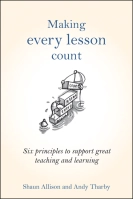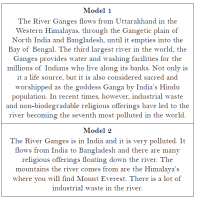Lots of people are thinking and talking about curriculum at the moment, which is a good thing. Curriculum, teaching and assessment are inextricably linked. When all three are aligned and of the highest quality, they should facilitate effective learning for all students, irrespective of their starting points. In turn, this should translate into all students making good progress and achieving strong academic outcomes. This matters, because it gives them the best possible life chances.
The curriculum outlines the key knowledge that students need to learn over their time with us in order to be successful; this will then drive what and how we teach. A challenging curriculum will require students to think deeply about subject and lesson content. In other words, the level of challenge in the curriculum sets the level of challenge in our classrooms.
At Durrington we have also been thinking a great deal about curriculum. We want our curriculum to be challenging in its depth and breadth so that:
- All students acquire transformational knowledge that takes them beyond their experience.
- All students are encouraged to appreciate the value of each subject and content of lessons.
- All students are well-prepared for terminal exams at the end of year 11.
- All students build their academic background knowledge and cultural capital by acquiring tier two and tier three vocabulary.
- At each key stage, all students acquire and retain the foundational knowledge required for the next key stage at the very least.
In order to achieve this, we have been developing a set of curriculum principles to drive our work with this:
- The curriculum must provide a map that directs what knowledge should be taught and when it should be taught. However, this should also allow some flexibility for teachers to respond to the differing needs of their classes.
- The curriculum must be taught in a coherent and step-by-step sequence that allows for the incremental development of knowledge within each subject/topic.
- When possible, each new unit of learning should build upon the previous unit.
- Broad and deep factual knowledge is usually the prerequisite for skills such as critical thinking, creative thinking, evaluation and analysis.
- Learning and performance should not be confused. Curriculum design should support real learning which requires durable changes to long-term memory.
- New tier two and tier three vocabulary should be incorporated into curriculum planning.
We are then implementing this in the following way:
- Each subject/team should develop a long-term map that clearly lays out the curriculum across the relevant key stages, so that the knowledge students are expected to acquire each academic year is made explicit. This knowledge should build cumulatively in terms of its breadth and depth.
- Subject/teaching teams should identify the concepts that are central to the mastery of each subject. They must then maintain an unrelenting focus on helping students to learn this knowledge.
- Regular retrieval practice and spaced practice should be built into the curriculum to help students form durable long-term memories.
- CPD, specifically SPDS (fortnightly subject, Planning & Development Sessions), must maintain an unrelenting focus on improving and evolving the curriculum, and ensure that all teachers are developing their subject pedagogical knowledge.
- Each unit of work must be supported by a knowledge organiser that stipulates with precision the material-to-be-learnt. This must include relevant tier two and tier three vocabulary and should be used consistently across each department.
- Where appropriate, strategies must be in place (e.g. check lists) that support students in self-regulating their learning of the curriculum.
- Homework should be planned into the curriculum and consistently applied across teams. It should provide students with the opportunity to practise, embed, extend upon or apply the knowledge that they have been taught in lessons, or provide the opportunity to improve a piece of work.
- Key curriculum documents must be centralised and made available for students, parents and carers via the VLE.
We are not the only ones thinking about the curriculum. There are a huge number of blogs out there, written by colleagues who are thinking very deeply about the importance of curriculum. These can serve as a really useful stimulus for others who are thinking about their their curriculum.
Here are some examples:
Weaving together the threads of the curriculum – Andy Tharby
Standing on the shoulders of giants; Why a knowledge based curriculum could be the future – Fran Haynes
Teaching, curriculum & assessment – Shaun Allison
From Tom sherrington:
What is a knowledge rich curriculum?
Curriculum notes #1: Start out real, concrete, authentic
Curriculum notes #2: Big picture first then zoom in
10 Steps for reviewing your KS3 curriculum
From Christine Counsell:
Senior Curriculum Leadership 1: The indirect manifestation of knowledge: (A) curriculum as narrative
Senior Curriculum Leadership 1: The indirect manifestation of knowledge: (B) final performance as deceiver and guide
From Mark Enser:
Curriculum: from hodge podge to coherence
From David Didau:
What is a broad and balanced curriculum?
From Clare Sealy:
What’s all the fuss about a knowledge rich curriculum – part 1
From Mary Myatt:
From Adam Boxer:
From Ruth Walker:
My plan to reform our curriculum
From Claire Stoneman:
The truth and beauty of curriculum
From James Ramsey:
From Michael Chiles:
From Mr Almond:
From Paul Moss:
Telling your Curriculum’s Story
From Andrew Percival:
Confessions of a Curriculum Leader: setting out a primary curriculum in meticulous detail.
From Zoe Enser:
Thanks to Dawn Cox for the following links. She has also compiled a list of blogs related to curriculum here.
Books
The Curriculum – Gallimaufry to coherence – Mary Myatt
Videos
- Ofsted’s curriculum research
- Data in the context of the curriculum
- Ofsted Curriculum Workshop – 7 Parts
Other resources
- HMCI’s commentary: recent primary and secondary curriculum research
- Ofsted Slide Share – Curriculum: intent, implementation and impact. Development work for the new inspection framework
Training
the Durrington Research School are running a 3 session twilight training programme entitled ‘Developing an evidence informed knowledge-rich curriculum’, starting on 29th April 2019.
Further details and booking are available here.
If I’ve missed any other useful blogs (which is highly likely!), please do add them in the comments below.










